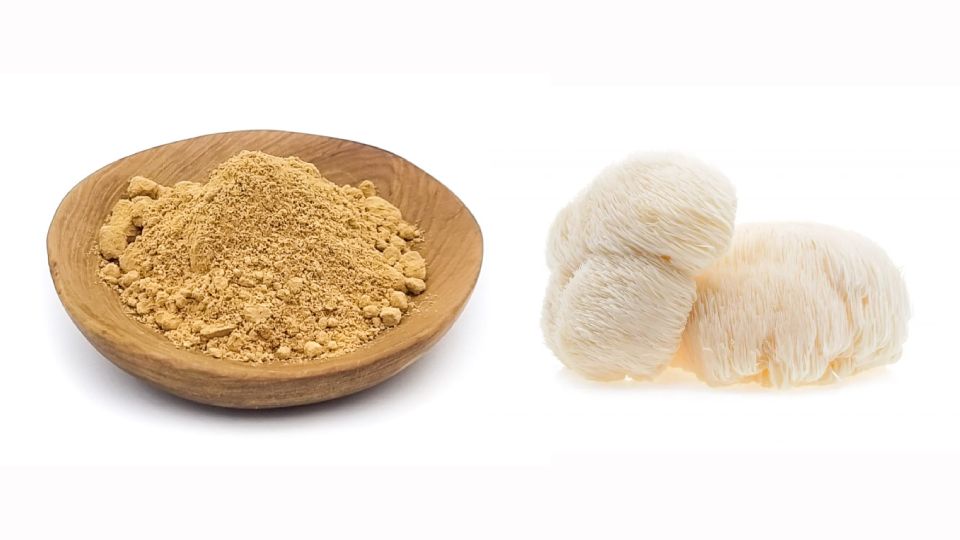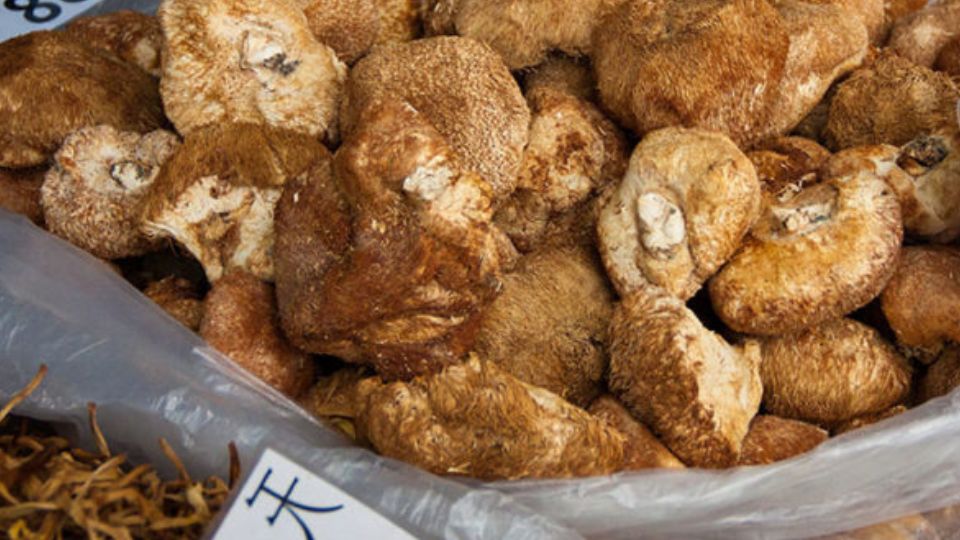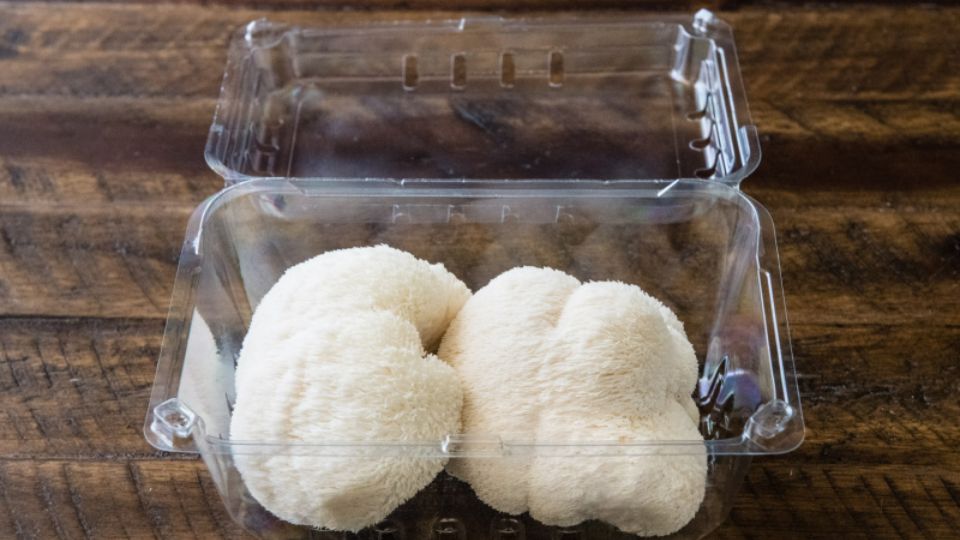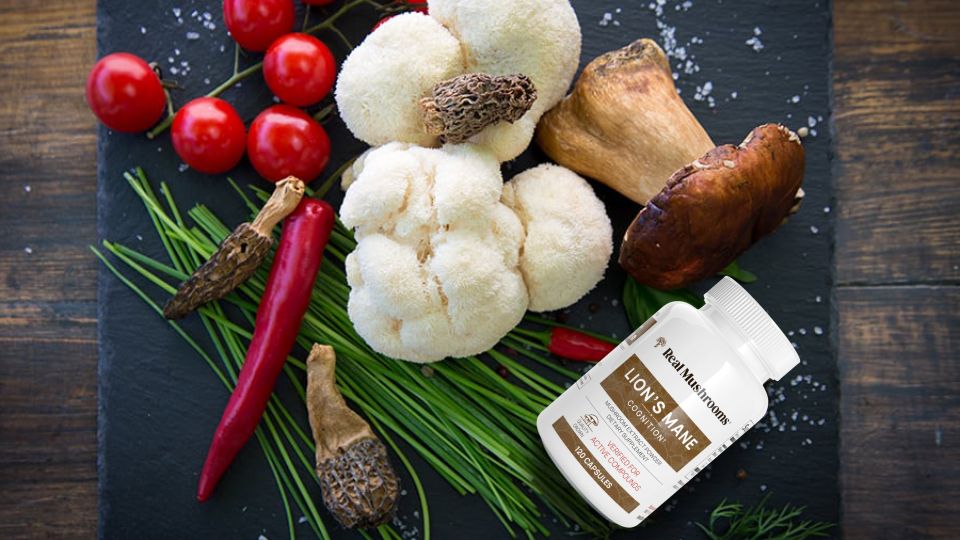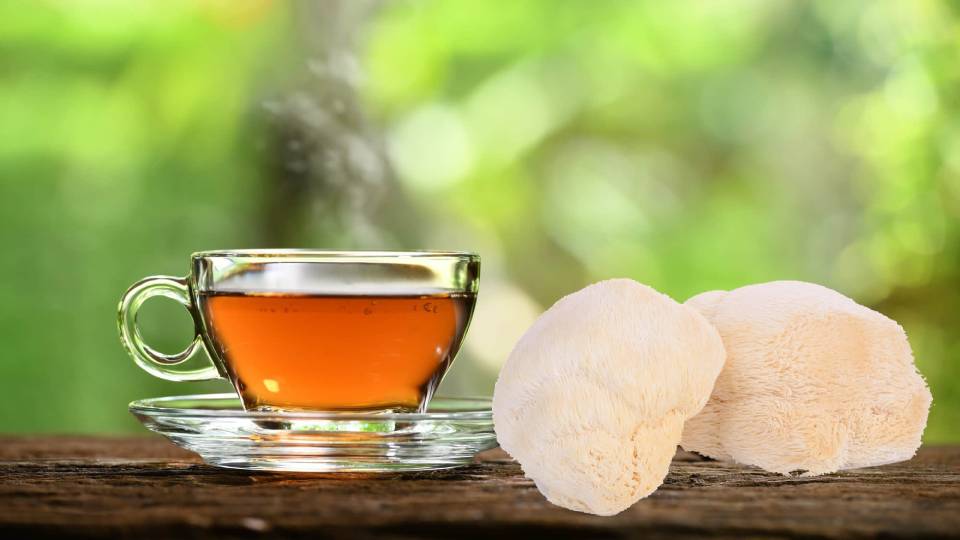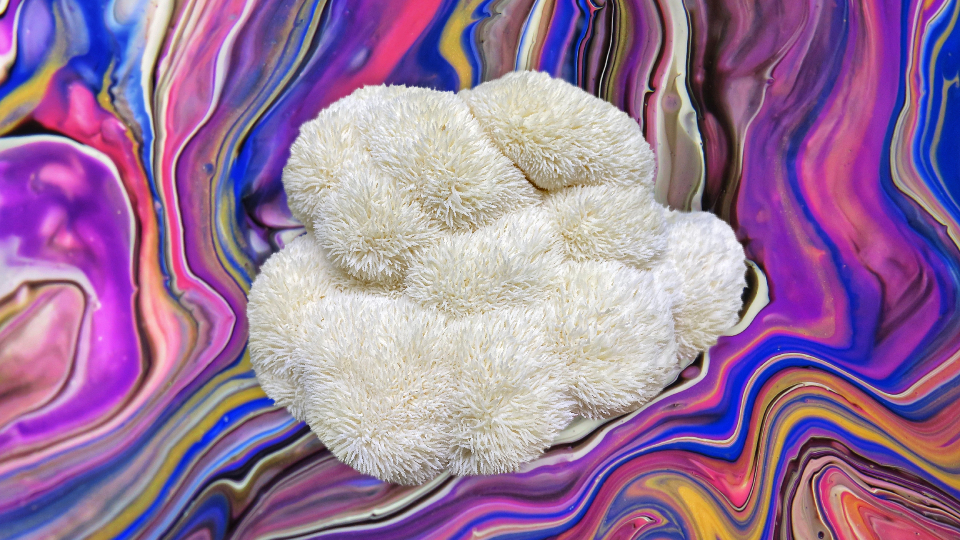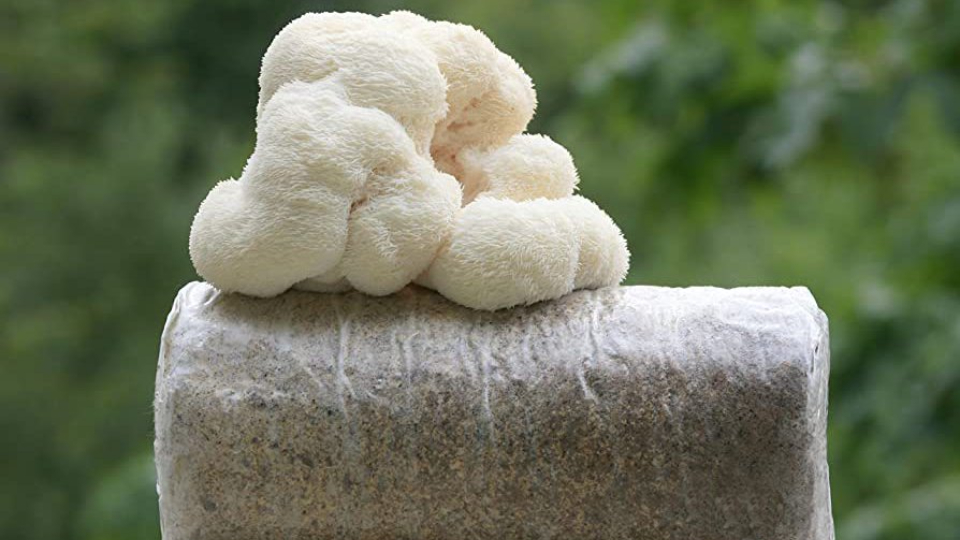
Lion’s Mane Mushrooms: A Complete Guide
Lion’s Mane mushrooms, scientifically known as Hericium erinaceus, thrive in the forests of North America, Asia, and Europe. They’ve been cherished for centuries in East Asian cultures like China, Japan, and Korea, valued for both their culinary and medicinal properties. Their name, Lion’s Mane, comes from their unique appearance.
In recent years, Western countries have caught onto the trend, embracing these mushrooms for their promising health benefits. People are increasingly turning to Lion’s Mane to reduce inflammation, boost immune function, and support cognitive and heart health. Many are also incorporating them alongside other medicinal mushrooms to promote overall well-being.
In this article, we’ll learn all about this “Lion’s Mane” mushroom, exploring its myriad benefits for human health. If you’re keen on culinary adventures, stick around as we share some delightful Lion’s Mane recipes to try out in your kitchen.
Identifying a Lion’s Mane Mushroom
To identify Lion’s Mane mushrooms, look in forests, particularly in hardwood forests. They often grow on dead or dying hardwood trees like oak, maple, and beech, and sometimes on other hardwoods like walnut or birch. The harvest time for them in the wild typically occurs during the late summer and autumn seasons.
They feature a distinctive white color, a lion’s mane-like shape with spines of 2-6 inches in length, a central stem, and can reach up to 10 inches in diameter. When touched, the spines break off easily, leaving a soft, spongy texture, and they lack a traditional cap, having small white tubes underneath.
History of Lion’s Mane
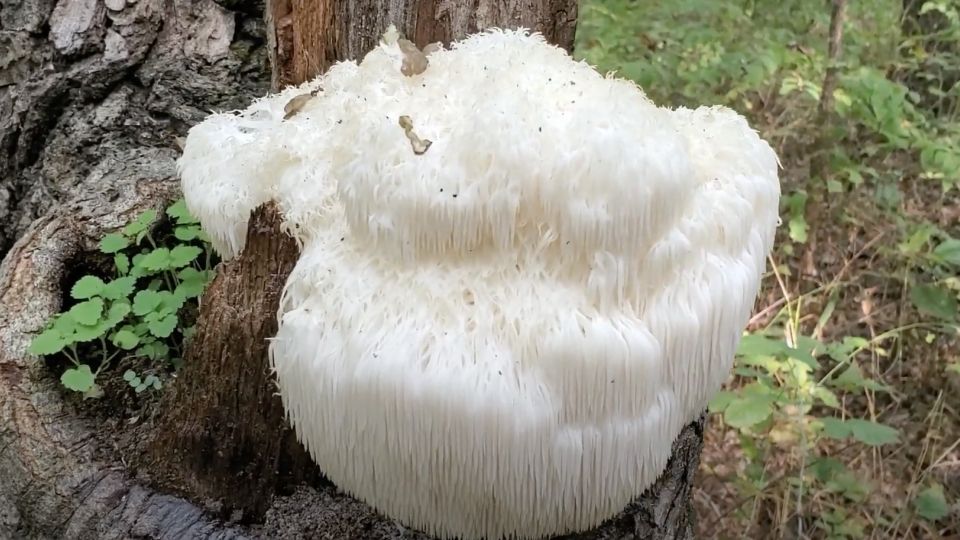
People have utilized the Lion’s Mane mushroom for its medicinal and culinary properties for over a thousand years. The Shennong Bencao Jing, a classical Chinese text from 200-300 CE, contains written records of its uses. In Japan, it is known as Yamabushitake and has been used for centuries.
The mushroom was once considered a divine cure and reserved for royalty and emperors. Chinese texts lauded the mushroom for its anti-inflammatory, antioxidant, and neuroprotective properties[1].
Health Benefits of Lion’s Mane
Lion’s Mane mushrooms offer a wide array of benefits that can enhance your physical, cognitive, and mental health[2]. These mushrooms contain natural bioactive compounds, which are health-promoting chemicals found in some foods and plants. Consequently, they possess disease-fighting properties, such as combating cancer, fighting off microbes, and providing antioxidant effects. The research found that the mushroom has a substantial impact on inflammation and can safeguard against oxidative stress, which is a significant cause of chronic inflammation and associated diseases[3].
Some of its potential benefits include:
- Nerve damage repair
- Heart health support
- Defense against diseases
- Reduced oxidative stress
- Blood sugar regulation
- Blood pressure reduction
- Increased energy, reduced fatigue
- Prevents excess blood lipid accumulation
- Slows aging
- Protects liver and kidney health
Its Benefits For Gut Health
When you’re thinking about gut health, consider Lion’s Mane mushroom. It’s shown some exciting potential in reducing inflammation, guarding against ulcers, and supporting a healthy connection between your gut and brain[4]. It is also packed with nutrients, like thiamine, riboflavin, and niacin, along with essential minerals such as manganese, zinc, and potassium.
Here’s a rundown of how it might benefit your gut:
- It shields you from stomach ulcers – Studies in mice reveal that lion’s mane mushroom extracts may safeguard your stomach against ulcers.
- It fights inflammation – It wields potent anti-inflammatory properties that can soothe inflammation in your digestive system. This can be particularly helpful if you have inflammatory bowel disease (IBD).
- It enhances your digestion – Thanks to its anti-inflammatory prowess, lion’s mane mushroom can potentially enhance the functioning of your stomach and digestive system.
- It bolsters your immune system – This mushroom might also give your immune system a boost and promote the growth of beneficial gut bacteria.
While research involving humans is still somewhat limited, the findings from laboratory and animal studies are promising.
Brain Health Benefits

- Improves Memory and Cognitive Function: Lion’s Mane Mushroom houses two unique compounds, hericenones, and erinacines, which stimulate brain cell growth. They’ve been shown to enhance your memory and cognitive abilities. This makes it a promising natural remedy for conditions like Alzheimer’s disease[5].
- Guards Against Dementia: As we age, our brain’s ability to form new connections declines, potentially leading to cognitive issues and dementia. Lion’s Mane Mushroom steps in by promoting brain cell growth and preventing damage caused by amyloid-beta plaques, which accumulate in Alzheimer’s disease.
- Eases Anxiety and Depression: Lion’s Mane Mushroom has been found to alleviate mild anxiety and depression symptoms. It’s likely because it boosts brain cell growth and improves cognitive function, ultimately uplifting your mood and reducing anxious and depressive feelings.
- Aids Nerve Repair: This mushroom also plays a role in nerve repair. It contains compounds that kickstart nerve cell growth and support the regeneration of damaged nerves. So, it’s a potential ally if you’re dealing with nerve damage.
Remember, while the research looks promising, more studies involving humans are needed to fully understand how Lion’s Mane Mushroom can benefit us.
Its Medical Compounds and Benefits
| Compound Name | Potential Health Benefits |
|---|---|
| Erinacines | Promotes nerve growth and regeneration |
| Hericenones | Enhances cognitive function |
| Beta-Glucans | Boosts immune system |
| Polysaccharides | Anti-inflammatory properties |
| Antioxidants | Protects cells from oxidative stress |
| Hericerin | May support gastrointestinal health |
| Beta-D-Glucans | Supports cardiovascular health |
| Amino Acids | Building blocks for various bodily functions |
| Minerals (e.g., zinc) | Essential for overall health |
| Vitamins (e.g., B12) | Contributes to metabolic processes |
“Lion’s Mane mushrooms contain a diverse array of polysaccharides, hericenones, and other bioactive compounds that have been shown to have immunomodulatory, anti-inflammatory, and neuroprotective properties.”
– Paul Stamets, The renowned mycologist
How to Use Lion’s Mane

You can savor Lion’s Mane mushrooms in various ways: raw, cooked, dried, or steeped into a comforting tea. Many folks describe their taste as “reminiscent of seafood,” often drawing comparisons to crab or lobster. In the kitchen, get creative! Fresh Lion’s Mane mushrooms can add depth to savory dishes like stir-fries, pizza, risotto, pasta, or soup. When it comes to mushroom powder, your options are wide open. Mix it into hot water, tea, coffee, a smoothie, or any beverage of your choice. Or, for a sweet twist, consider adding it to your healthy treats, like desserts, or even in your hot chocolate.
Forms
Lion’s Mane mushrooms can be found in various forms. These include:
- Capsules
- Powder
- Tinctures
- Gummies
- Tablets
To find the best Lion’s mane supplements, research trusted brands, read labels, check for third-party testing, and consult healthcare experts for personalized advice. Consider natural ingredients, avoid proprietary blends, review customer feedback, check expiration dates, and choose supplements tailored to your specific needs.
Dosage
Determining the ideal recommended dosage of lion’s mane remains challenging due to insufficient evidence. The appropriate dose depends on factors such as your specific purpose, desired effects, and overall health, including age, and other medications or supplements being taken. If you’re uncertain about the best starting dose, consulting your doctor or a naturopathic practitioner is advisable[6].
For those seeking cognitive benefits, particularly in safeguarding against memory loss, research suggests a potential dose of 500 milligrams taken with food.
In a 2019 study, 77 individuals who were overweight, or had obesity experienced relief from depression, anxiety, and sleep disorders. They achieved this by taking three 400-mg capsules daily for 8 weeks[7].
Similarly, in a 2020 study involving individuals aged 50 and older with mild Alzheimer’s disease symptoms, significant improvement in cognitive function was observed. This improvement occurred after these individuals took three 350 mg capsules of lion’s mane daily for 49 weeks[8].
However, it is recommended to consult with a healthcare professional before starting any new dietary supplement.
Lion’s Mane Side Effects and Safty
Although Lion’s Mane mushroom is generally safe and non-toxic, it’s essential to understand its potential drawbacks. The most common side effect is gastrointestinal discomfort. Some people may experience mild stomach upset, nausea, or other gastrointestinal disturbances after consuming the mushroom.
Moreover, some people may experience allergic reactions. Symptoms can range from mild skin irritation to more severe reactions like anaphylaxis.
Lastly, it’s vital to note that Lion’s Mane may interact with specific medications. The mushroom has been shown to inhibit certain enzymes in the body, which can affect the metabolism of certain drugs.
Therefore, it’s advisable to consult with a healthcare professional before consuming the mushroom, especially if taking any medications.
How to Cultivate Lion’s Mane Mushrooms?
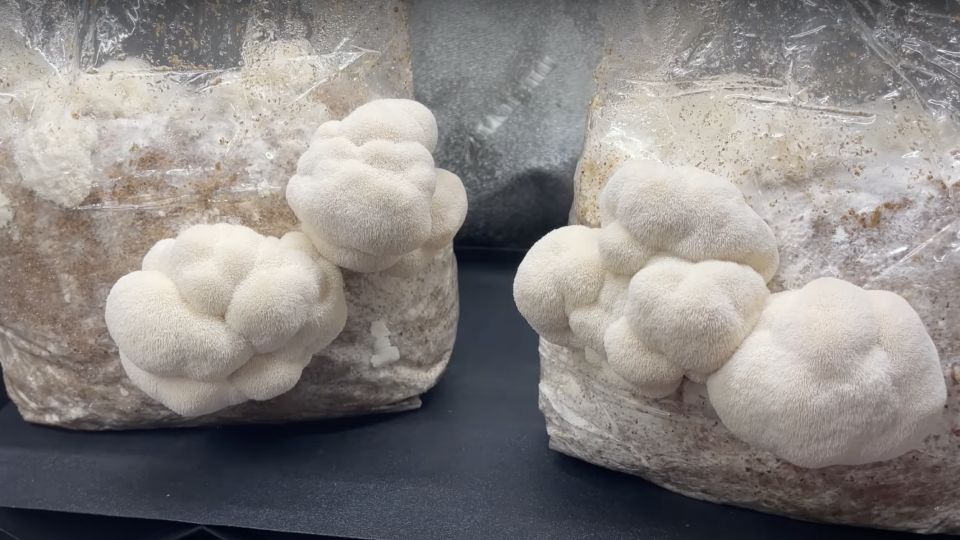
If you’re interested in growing your own Lion’s Mane mushrooms, follow these tips:
- Select the Proper Substrate: Choose a substrate that provides all the necessary nutrients for your fungi. Lion’s Mane thrives on supplemented hardwood sawdust. You can enhance it with wheat bran, typically at 10-20%.
- Sterilize the Substrate: If you’re using sawdust, begin by sterilizing it through an hour of boiling.
- Inoculate with Spawn or Culture: Combine the substrate with your chosen spawn or culture. Options include mushroom growing kits, ready-to-fruit substrate blocks, or purchasing spawns from a reputable supplier. Inoculate your substrate with the chosen culture.
- Incubate the Substrate: Place the mixture of spawn and substrate in a warm, dark location for several weeks. This period allows the mycelium to fully colonize the substrate.
- Optimal Growing Conditions: Ensure a humid environment with adequate ventilation for your Lion’s Mane mushrooms. They prefer cooler temperatures, ideally around 60-65°F (15-18°C).
- Harvest at the Right Time: Harvest your mushrooms when they reach full maturity and display a fluffy, white appearance. Use a sharp knife to cut them at the base of the stem.
- Enjoy Your Harvest: Lion’s Mane mushrooms not only add a delightful culinary touch to meals but also offer remarkable health benefits.
Summary
Lion’s Mane presents promising health benefits, including memory protection, dementia prevention, depression symptom relief, and support for nerve cell recovery. Additionally, it may lower the risk of stomach ulcers. Many people also believe it offers spiritual benefits, contributing to better mental and emotional health.
You can find Lion’s Mane in the wild or easily grow it at home with a growing kit. Its taste resembles seafood, making it a unique culinary experience worth trying. Give it a shot and let us know how you enjoy it!
The Definitive Guide to Lion’s Mane Mushrooms
Discover the unique taste, potential health benefits, and cultivation tips for Lion’s Mane mushrooms. Learn how to incorporate them into your daily diet.
- Lion’s Mane TasteLion’s Mane Taste: Does It Taste Like Mushrooms? The Lion’s Mane mushroom, known by its scientific name Hericium erinaceus, is a unique fungus found in … Read more
- Lion’s Mane PowderLion’s Mane Powder: Before You Buy – All You Need To Know If you’re considering Lion’s Mane powder, here’s what you should know before purchasing. … Read more
- Lion’s Mane AddictionLion’s Mane Addiction: What We Need to Know Can you become addicted to Lion’s Mane mushrooms? Unlike prescription antidepressants and psychoactive drugs, Lion’s Mane doesn’t … Read more
- Lion’s Mane Mushroom TasteExploring the Exquisite Taste of Lion’s Mane Mushroom Many people know about the benefits of functional mushrooms like Lion’s Mane but wonder if they’ll enjoy … Read more
- How to Dry Lion’s Mane MushroomHow to Dry Lion’s Mane Mushroom: 4 Best Ways Lion’s Mane, a captivating mushroom, stands out with its distinctive appearance and a treasure trove of … Read more
- Lion’s Mane Grow KitGrow Lion’s Mane Mushrooms with a Lion’s Mane Grow Kit In recent years, the world of gourmet mushrooms has witnessed a surge in Lion’s Mane … Read more
- When to Take Lion’s ManeWhen to Take Lion’s Mane: The Best Time for Maximum Benefits Consumers often ask about when to take Lion’s mane and whether timing impacts its … Read more
- Where to Buy Lion’s Mane MushroomWhere to Buy Lion’s Mane Mushroom? The Lion’s Mane Mushroom is truly remarkable. For centuries, it has been cherished in traditional medicine for its numerous … Read more
- Best Lion’s Mane SupplementBest Lion’s Mane Supplement: Our Top 6 Picks for 2025 *Last updated on 13 Jan, 2025* Choosing the best lion’s mane supplement in 2025 can … Read more
- Lion’s Mane TeaTop 3 Best Lion’s Mane Tea Recipes Lion’s Mane tea, a delightful and convenient beverage, offers a unique opportunity to unlock the benefits of this … Read more
- Lion’s Mane Mushroom Recipe6 Lion’s Mane Mushroom Recipes – Easy and Delicious Lion’s Mane mushrooms are not only incredibly potent medicinally, but they’re also delicious and healthy. They … Read more
- Is Lion’s Mane Psychedelic?Is Lion’s Mane Mushroom Psychedelic? What You Should Know Are you curious if Lion’s Mane mushroom is psychedelic? The answer is certain, they’re non-psychoactive—no psilocybin, … Read more
- How to Grow Lion’s ManeGrowing Lion’s Mane Indoors and Outdoors (A Step-by-Step Guide) Learn how to grow Lion’s Mane mushrooms and explore their distinct taste and potential health benefits. … Read more
- Lion’s Mane CoffeeLion’s Mane Coffee: A Healthy Morning Brew (Recipe Included) Lion’s mane coffee is gaining popularity in the supplement market as a trending blend. It combines … Read more
- Lion’s Mane Spiritual BenefitsTop 4 Lion’s Mane Spiritual Benefits In the realm of natural remedies, few treasures hold as much mystique and wonder as the Lion’s Mane mushroom. … Read more
References
1. “Neuroprotective effects of Hericium erinaceus extracts and its isolated compounds against glutamate-induced cytotoxicity in rat cortical neurons,” Int. J. Med. Mushrooms, vol. 18, no. 4, pp. 343–357, 2016. Retrieved from https://www.ncbi.nlm.nih.gov/pmc/articles/PMC7656699/
2. Hericium erinaceus (Bull.) Pers. Ethanolic Extract with Antioxidant Properties on Scopolamine-Induced Memory Deficits in a Zebrafish Model of Cognitive Impairment. Retrieved from https://www.ncbi.nlm.nih.gov/pmc/articles/PMC8231562/
3. Secondary Metabolites from Hericium erinaceus and Their Anti-Inflammatory Activities. Retrieved from https://www.researchgate.net/publication/359505725_Secondary_Metabolites_from_Hericium_erinaceus_and_Their_Anti-Inflammatory_Activities
4. Antitumor, Anti-inflammatory and Antiallergic Effects of Agaricus blazei Mushroom Extract and the Related Medicinal Basidiomycetes Mushrooms, Hericium erinaceus and Grifola frondosa: A Review of Preclinical and Clinical Studies. Retrieved from https://www.ncbi.nlm.nih.gov/pmc/articles/PMC7285126/
5. Polysaccharides from Hericium erinaceus Fruiting Bodies: Structural Characterization, Immunomodulatory Activity and Mechanism. Retrieved from https://www.researchgate.net/publication/363513400_Polysaccharides_from_Hericium_erinaceus_Fruiting_Bodies_Structural_Characterization_Immunomodulatory_Activity_and_Mechanism
6. Effect of high quality dietary fiber of Hericium erinaceus on lowering blood lipid in hyperlipidemia mice. Retrieved from https://www.sciencedirect.com/science/article/pii/S2772566922000313
7. Prevention of Early Alzheimer’s Disease by Erinacine A-Enriched Hericium erinaceus Mycelia Pilot Double-Blind Placebo-Controlled Study. Retrieved from https://www.ncbi.nlm.nih.gov/pmc/articles/PMC7283924/
8. Hericium erinaceus Improves Mood and Sleep Disorders in Patients Affected by Overweight or Obesity: Could Circulating Pro-BDNF and BDNF Be Potential Biomarkers? Retrieved from https://www.ncbi.nlm.nih.gov/pmc/articles/PMC6500611/


